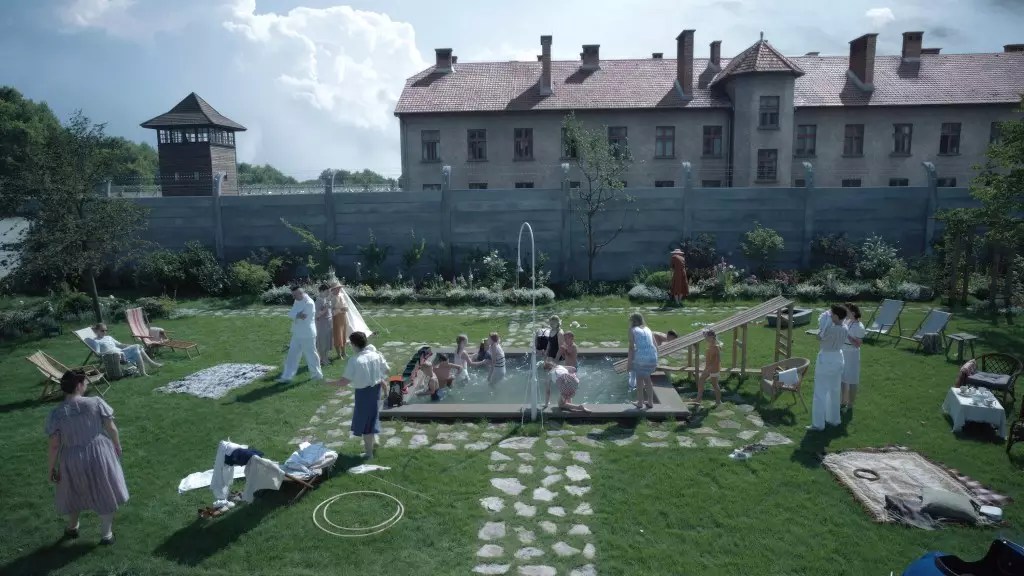Jonathan Glazer’s “The Zone of Interest” is an audacious historical drama that takes inspiration from Martin Amis’ novel of the same name. Set against the backdrop of Auschwitz during the Holocaust, this A24 film has garnered critical acclaim since its premiere at the Cannes Film Festival. Going beyond the confines of a traditional period piece, Glazer delves deep into the human psyche, forcing audiences to confront the darkest recesses of our collective history.
“The Zone of Interest” has made a significant impact on the film festival circuit, with its debut at Cannes earning accolades such as the Grand Prix and FIPRESCI prizes. Although it missed out on the Palme d’Or, the film left an indelible mark on viewers. Its raw and unflinching portrayal of life outside the walls of Auschwitz struck a chord, offering a fresh perspective on a time period often oversimplified by mainstream cinema.
Glazer’s return to the big screen after a 10-year hiatus is a triumph in itself. Following his previous directorial successes like “Under The Skin” (2013) and “Sexy Beast” (2000), he showcases his versatility once again in “The Zone of Interest.” This time, Glazer weaves a narrative that explores the power dynamics and human relationships within the confines of a concentration camp, pushing the boundaries of storytelling and challenging conventional perceptions.
The central focus of the film lies on Auschwitz commandant Rudolf Höss, portrayed by Christian Friedel, and his wife Hedwig, played by Sandra Hüller. Behind the veneer of their seemingly idyllic life, the horrors of the Holocaust loom just beyond a short wall separating their house and garden from the Nazi camp. Glazer intentionally keeps the atrocities hidden, only offering glimpses of the unspeakable horrors unfolding on the other side. This striking visual metaphor underscores the film’s thematic exploration of superficial normalcy in the face of unimaginable evil.
Glazer’s commitment to authenticity sets “The Zone of Interest” apart from other Holocaust dramas. His two-year research process immerses audiences in the historical reality of the period, as he incorporates real names and meticulously constructs the narrative around the actual events that occurred. By humanizing the characters, Glazer forces viewers to confront the uncomfortable truth that the individuals perpetrating these crimes were, in fact, human beings. Through this, he compels us to grapple with the capacity for violence and atrocity that resides within all of us.
A Cautionary Tale for the Present
Beyond its historical context, “The Zone of Interest” serves as a haunting cautionary tale for contemporary society. Glazer underscores our inherent ability to distance ourselves from the horrors committed by others, urging us to confront our own potential for cruelty. By shining a light on humanity’s darkest crimes, the film forces us to question our complacency and consider the responsibility we bear in preventing future atrocities.
“The Zone of Interest” transcends the boundaries of traditional Holocaust dramas. With its audacious storytelling and commitment to historical accuracy, Jonathan Glazer crafts a cinematic experience that forces audiences to confront the harrowing depths of human darkness. As we navigate the complexities of our present world, this film serves as a timely reminder of the consequences of turning a blind eye to the horrors that unfold around us.


Leave a Reply